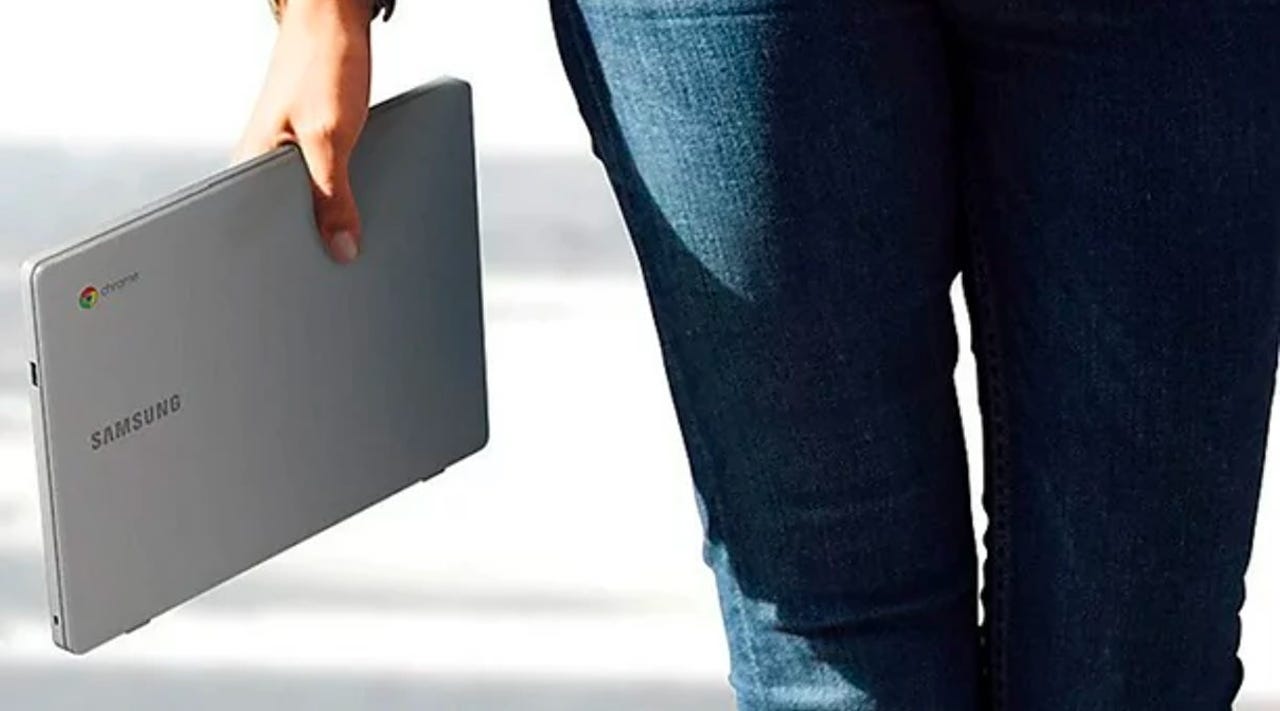































 Walmart
Walmart I enjoy a good Chromebook. They're so simple to use and rarely have problems. Not only that, but they're fast, secure, and as user-friendly as a computer can be. One of my favorite aspects of the Chromebook is the ability to quickly powerwash it (factory-reset it) and start fresh. The only problem with that scenario is that it deletes everything you've downloaded.
Ack!
If you don't regularly save files that you need to use later on, that's fine. But should you have a collection of important files in your Downloads folder, when you run a powerwash on the computer, all of those files will be gone.
I've done this enough times to know how frustrating it can be.
Also: 5 reasons Chromebooks are the perfect laptop (for most users)
So, what do you do? Well, there are two paths you can take. The first is to tell Chrome to ask where to save each file. When configuring the browser as such, you can save those downloads anywhere you like (such as to an external SD card). The second option is to change the location of the Chrome downloads directory.
Let me show you how to do both.
The only thing you'll need for this is a Chromebook. Make sure you're running an updated version of ChromeOS, so you have all the latest security patches and features. That's it. Let's make those changes.
The first thing to do is open Chrome on your Chromebook, click the three-dot menu in the upper right corner, and click Settings from the menu.
Accessing the Chrome Settings window in ChromeOS.
Screenshot by Jack Wallen/Click Downloads in the left sidebar and you'll see the Downloads configuration window.
The default Downloads directory is located in the Chromebook's internal storage.
Screenshot by Jack Wallen/In the resulting window, click the ON/OFF slider for "Ask where to save each file" before downloading until it's in the ON position.
Once you've done this, close the Settings tab. The next time you go to download a file, Chrome will ask you where to save it. If it's one you know you'll want to use later, save it in Google Drive. If the file will only be used temporarily, go ahead and save it in the Downloads folder.
The next method moves the default Downloads folder to the location of your choosing. If you move the Downloads folder to your Google Drive account, you'll always have a copy in the cloud of your downloaded files. Even better, you can access those downloaded files on any web browser associated with your Google account.
Before you make this change, do be aware that moving the Downloads folder to Google Drive means your Chromebook will have to be online to save the file.
That said, if you're downloading a file from the internet, you're already connected to the internet, so it's almost a moot point.
Also: Here are Lenovo's new ThinkPad PCs, Yoga laptops, and a Chromebook
All things considered, I prefer to change the location of my Downloads folder in ChromeOS to a folder in Google Drive I've created, aptly named DOWNLOADS.
Here's how you make that change.
Go back to Settings > Downloads. In that window, click Change.
In the resulting pop-up, navigate to the folder in Google Drive you want to use for the new Downloads location and click Open. You can leave the ON/OFF slider set to "Ask where to save each file before downloading," and Chrome will still ask but will default to the folder you chose from Google Drive.
Relocating the Chrome Downloads folder to Google Drive.
Screenshot by Jack Wallen/You can also select a location on an SD card, which will also ensure that those files will remain even after a powerwash. The difference is that you won't have access to the downloaded file from other web browsers associated with your Google Drive account.
Also: How to use Google Drive as your virtual backpack (and why you should)
Once you've taken care of the configuration, close the Settings window and you're good to go. Every time you download a file, Chrome will either ask you where to save it or will automatically save it to the folder you selected in Google Drive. If you opt to save the downloaded file to either Google Drive or an SD card, those files will be available -- even if you have to powerwash your Chromebook.
 Etiquetas calientes:
empresas
Google Google Google Google Google Google Google Google Google Google Google Google Google Google
Etiquetas calientes:
empresas
Google Google Google Google Google Google Google Google Google Google Google Google Google Google